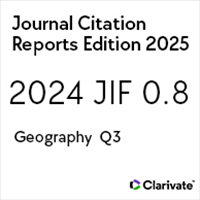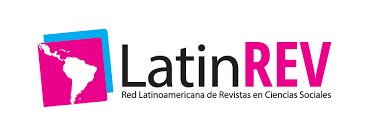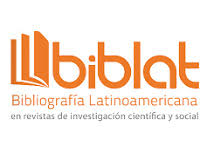Indicadores de uso sustentable del agua en Ciudad Juárez, Chihuahua
Indicators for the sustainable use of water in Ciudad Juarez, Chihuahua
https://doi.org/10.21670/ref.2007.16.a01
Palabras clave:
ambiente, sustentabilidad, uso sustentable del agua, indicadores de sustentabilildad, Ciudad JuárezResumen
Este trabajo propone la generación de indicadores que permitan un avance en la evaluación del uso sustentable del agua en Ciudad Juárez, Chihuahua. Para la medición de sustentabilidad se propone un modelo sistemático que involucra a la sociedad, la infraestructura, las instituciones y el medio ambiente. Se logra avanzar en la generación y medición de indicadores que tienen que ver con la calidad de vida de la sociedad, el estado actual de la infraestructura de agua potable y la respuesta en materia de tratamiento. Estos indicadores son: 1. acceso al agua segura; 2. acceso a instalaciones sanitarias adecuadas; 3. conexiones domiciliarias; 4. precio del agua; 5. consumo del agua; y 6. aguas residuales tratadas. Los resultados indican que en Ciudad Juárez el sistema municipal de agua y saneamiento presenta buenos indicadores de uso sustentable del agua; esto sin considerar la tasa de extracción-recarga del acuífero y la calidad del agua potable. Quedan por trabajar los indicadores sobre las instituciones o el marco legal (gobernabilidad del agua), sobre participación ciudadana y sobre impacto al medio ambiente.Abstract This paper seeks to develop indicators that allow us to progress in the evaluation of the sustainable use of water in Ciudad Juarez, Chihuahua. In order to measure sustainability, a systematic model was proposed involving society, institutions, infrastructure and the environment that would allow us to advance in the knowledge about interaction between society and its environment. Progress was achieved in the developing and measurement of some indicators, such as those related to quality of life and current state of water infrastructure and treatment. Using existing data, it was possible to develop and measure the following indicators for the sustainable use of water: 1. secure access to water; 2. access to adequate sanitation systems; 3. domiciliary connections; 4. water price; 5. water consumption, and 6. waste water treatment. Results indicate that the municipal water system of Ciudad Juarez presents good indicators for sustainable use of water, however, they do not take into account the negative rate of rechargeextraction of the city's water supply system or of the quality of water for human consumption. The author considers that other indicators related to institutional and legal frame works, citizen participation, water quality, and environmental impact must be developed and estimated.
Citas
Bixby, K. (1999), “Water Conflicts in the Paso del Norte Border Region”, Borderlines 57, disponible en http://www.us-mex.org/borderlines/1999/b157
Bossel, Hartmut (1999), Indicators for Sustainable Development: Theory, Method, Applications, International Institute for Sustainable Development, Winnipeg, Canadá.
CNA (2002), Registro mensual de temperatura media, INEGI, Anuario estadístico.
El Paso Water Utilities (EPWU) (2006), “El Paso Water Supply”, recuperable en línea: www.epwu.org/water/water_resourcces.html
Fuentes Flores, César Mario y Luis E. Cervera Gómez (2004), “La gestión del suelo urbano en Ciudad Juárez, Chihuahua: la difícil transición de la gobernabilidad autoritaria a la gobernabilidad democrática”, en Luis Antonio Payán y Socorro Tabuenca Córdoba (coords.), Gobernabilidad o ingobernabilidad en la región Paso del Norte, Universidad Estatal de Nuevo México, Universidad Autónoma de Ciudad Juárez, El Colef, Editorial EON, México.
Fuentes Flores, César Mario (2001), “Los cambios en la estructura intraurbana de Ciudad Juárez, Chihuahua, de monocéntrica a multicéntrica”, Frontera Norte, vol. 13, núm. 25, enero-junio.
Gleik Peter, H., Sandra Postel L. y Jason Morrison (1996), The Sustainable Use of Water in the Lower Colorado River Basin, The Pacific Institute for Studies in Development, Environment and Security, Oakland, California.
Heywood, C.E. y R.M. Yager (2003), Simulated Ground-Water Flow in the Hueco Bolson, and Alluvial-Basin Aquifer, El Paso, Texas: U.S., Geological Survey Water-Resources Investigations Report 02- 4108.
Hibbs B., C. Eastoe, F. Philips y J. Hogan (2002), “Groundwater and Surface Water Salinization in the El Paso/Juarez Region. Thrust Area 2 Overview. SAHARA. Disponible en línea: http://www. sahra.arizona.edu/research/TA2/2_9.html
INEGI (2000), XII Censo General de Población y Vivienda, IV-Chihuahua, Aguascalientes, México.
_____ (2002), Anuario estadístico del estado de Chihuahua, Aguascalientes, México.
_____ (2002), Anuario estadístico, Chihuahua.
JMAS (1997), “Proyecto de las Plantas de Tratamiento de Aguas Residuales Norte y Sur y Obras Complementarias de Alcantarillado de Cd. Juárez, Chihuahua”, Formato Etapa II de COCEF, disponible en línea: www.cocef.com
_____ (2002), “Condición de agua potable y saneamiento en Juárez”, documento inédito.
_____ (2005), Plan de trabajo 2005, Gobierno del Estado de Chihuahua.
JMAS (2000), “Alternativas presentadas en el Plan Maestro para el Mejoramiento de los Servicios de Agua Potable, Alcantarillado y Saneamiento, Ciudad Juárez”.
Loucks, P. Daniel y John Gladwell S. (1999), Sustainability Criteria for Water Resource Systems, International Hydrology Programme, Cambridge University Press.
OECD (1998), Toward Sustainable Development: Environmental Indicators. Francia, OECD.
Rincon, C. et al. (2005), “Promoción de asociaciones de colaboración participativa para la conservación del recurso agua en la región Paso del Norte”, Paso del Norte Water Task Force (PNWTF), documento en revisión para su publicación en formato electrónico.































